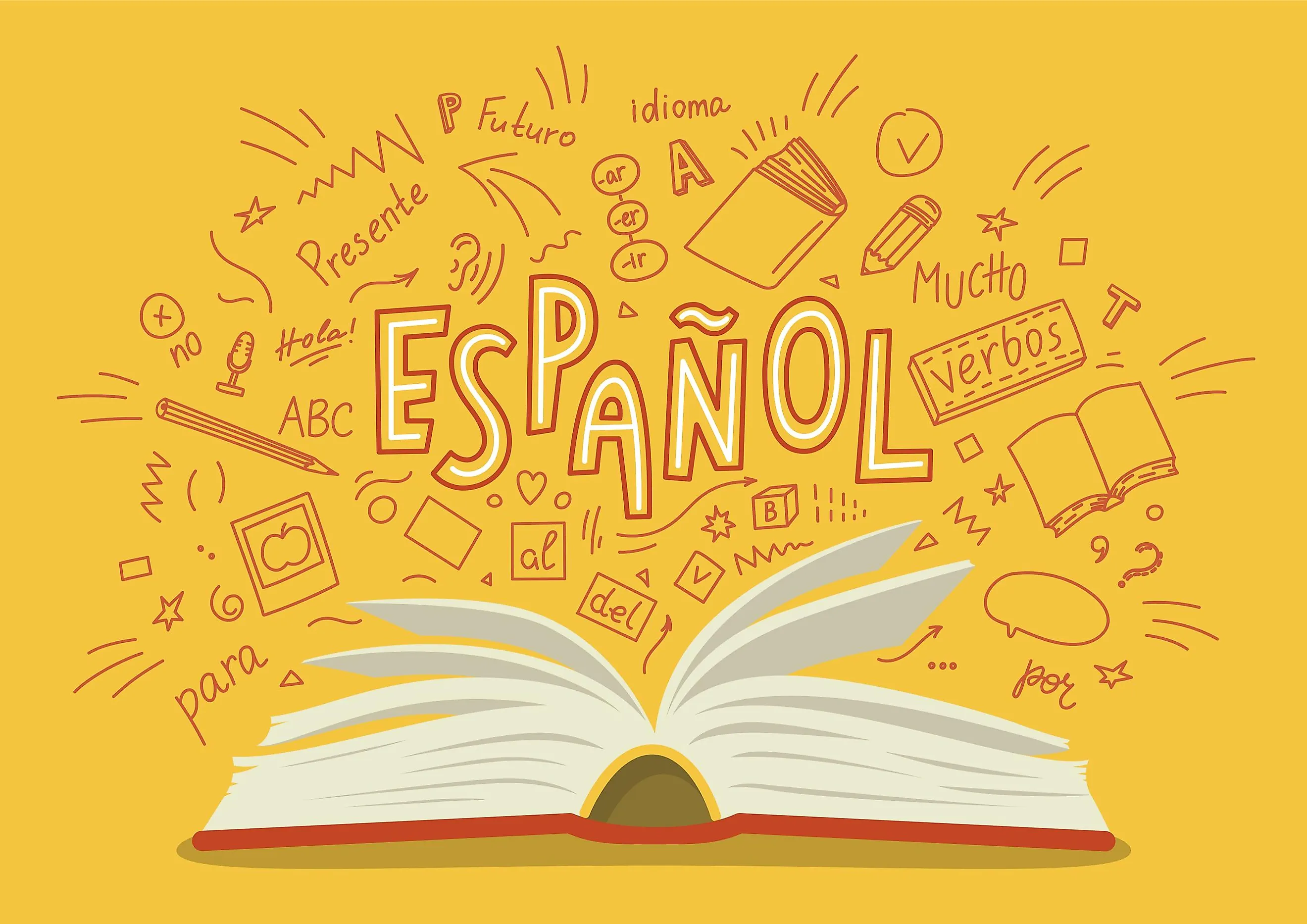Other in spanish language – Embark on an enthralling journey into the realm of “otro” in Spanish language, a word that transcends mere grammaticality and delves into the depths of cultural and literary expression. This exploration unravels the multifaceted nature of “otro,” uncovering its grammatical functions, semantic nuances, and profound cultural significance.
Through a comprehensive analysis, we illuminate the grammatical roles of “otro,” its diverse forms and usage in various contexts. We delve into its semantic subtleties, distinguishing it from similar Spanish words and exploring its unique connotations and implications. Furthermore, we uncover the cultural significance of “otro” in Spanish-speaking communities, examining its reflection of societal attitudes towards diversity and otherness.
Grammatical Analysis of “Otro”: Other In Spanish Language

The Spanish word “otro” can fulfill various grammatical roles, ranging from indefinite pronouns to determiners and adjectives. Understanding its diverse functions is crucial for accurate usage in Spanish communication.
Indefinite Pronoun, Other in spanish language
As an indefinite pronoun, “otro” means “another” or “one more.” It can refer to a person, thing, or idea and is often used to indicate a different or additional entity.
Examples:
- Necesito otro bolígrafo. (I need another pen.)
- Hay otra persona en la sala. (There is another person in the room.)
- Tengo otra idea. (I have another idea.)
Determiner
When used as a determiner, “otro” functions as an adjective and precedes a noun. It typically means “other” or “different” and is used to contrast or distinguish between entities.
Examples:
- El otro libro es más interesante. (The other book is more interesting.)
- La otra casa es más grande. (The other house is bigger.)
- Los otros estudiantes son más inteligentes. (The other students are more intelligent.)
Adjective
In its adjectival form, “otro” means “another” or “different” and modifies a noun. It can be used to describe a characteristic or quality of a person, thing, or idea.
Examples:
- Es una persona muy otra. (She is a very different person.)
- Tiene otra forma de pensar. (He has a different way of thinking.)
- Es un otro mundo. (It’s a whole other world.)
Summary Table
The following table summarizes the grammatical roles of “otro” with examples:
| Grammatical Role | Form | Example |
|---|---|---|
| Indefinite Pronoun | otro | Necesito otro bolígrafo. |
| Determiner | otro + noun | El otro libro es más interesante. |
| Adjective | otro + noun | Es una persona muy otra. |
Semantic Nuances of “Otro”

The Spanish word “otro” translates to “other” in English and shares similar meanings with words like “diferente” and “distinto.” However, “otro” carries unique semantic nuances that distinguish it from these other terms.
In general, “otro” implies a contrast or difference in identity or quality. It can refer to a different person, thing, or idea that is distinct from the one being discussed.
Subtle Differences
- Difference in Identity:“Otro” emphasizes a complete distinction in identity. For example, “Tengo otro hermano” (I have another brother) indicates that the speaker has a different brother, not the same one as previously mentioned.
- Difference in Quality:“Otro” can also indicate a difference in quality or characteristic. For example, “Es otro día” (It’s another day) suggests that the current day is different from the previous one, implying a change in mood or circumstances.
- Implied Negation:In certain contexts, “otro” can imply a negation or rejection of the previous statement. For example, “No es otro que mi padre” (He’s none other than my father) strongly emphasizes the speaker’s father’s identity, excluding any other possibilities.
- Indefinite Reference:“Otro” can also be used as an indefinite pronoun, meaning “another one.” For example, “Quiero otro café” (I want another coffee) indicates the speaker’s desire for an additional cup of coffee.
Cultural Significance of “Otro”
In Spanish-speaking communities, the word “otro” carries a profound cultural significance that reflects societal attitudes towards diversity and otherness. It embodies a complex interplay of inclusion, exclusion, and the recognition of difference.
Historically, “otro” has been used to refer to individuals or groups perceived as outsiders or different from the dominant culture. This usage can sometimes carry undertones of prejudice or discrimination, as in the case of referring to indigenous or marginalized communities as “los otros” (the others).
“Otro” and Inclusion
Despite its potential for exclusion, “otro” can also be used in a more inclusive sense to recognize and celebrate diversity. For example, the phrase “todos somos otros” (we are all others) emphasizes the shared humanity and interconnectedness among individuals regardless of their differences.
In contemporary Spanish-speaking societies, there is a growing movement towards embracing “otro” as a positive concept that promotes understanding and empathy across cultural and social boundaries.
Literary Applications of “Otro”
In Spanish-language literature, the concept of “otro” has been employed as a potent literary device to convey a range of emotions and ideas. Authors have skillfully utilized “otro” to create literary tension, suspense, and emotional depth, enriching the narrative experience for readers.
Literary Techniques and Devices
Spanish-language authors employ various literary techniques and devices to convey the concept of “otro.” These include:
- Metaphor and Symbolism:“Otro” is often used metaphorically to represent the unknown, the different, or the marginalized. Authors use symbols to evoke the presence of “otro” and its impact on the protagonist.
- Foreshadowing and Suspense:“Otro” can be introduced as a subtle hint or foreshadowing, creating a sense of unease and anticipation. Authors build suspense by gradually revealing the true nature of “otro” and its consequences.
- Ambiguity and Open-Endedness:Authors often leave the interpretation of “otro” ambiguous, allowing readers to draw their own conclusions. This open-endedness adds depth and complexity to the narrative.
Examples of Literary Works
Numerous Spanish-language literary works have effectively utilized “otro” to enhance their narrative power. Notable examples include:
| Work | Author | Significance |
|---|---|---|
| “La casa de Bernarda Alba” | Federico García Lorca | “Otro” represents the repressed desires and stifled individuality of the female characters. |
| “Cien años de soledad” | Gabriel García Márquez | “Otro” manifests in the recurring presence of the ghost of José Arcadio Buendía, representing the past and its haunting effects. |
| “El laberinto de la soledad” | Octavio Paz | “Otro” explores the complex relationship between Mexico and the West, highlighting the tension between the self and the other. |
Comparative Analysis with Other Languages

In various languages, the concept of “other” is expressed through terms that share certain similarities and distinctions. This analysis compares the usage and connotations of “otro” in Spanish to its equivalents in English (“other”) and French (“autre”).
Grammatically, “otro” functions as an indefinite pronoun or adjective in Spanish, while “other” and “autre” are typically used as pronouns or adjectives in English and French, respectively. In all three languages, these words can be used to indicate a different or additional person or thing.
Semantic Nuances
- Indefinite Reference:“Otro” in Spanish, “other” in English, and “autre” in French can all be used to refer to an unspecified or unknown person or thing. For example, “Necesito otro libro” (Spanish), “I need another book” (English), and “J’ai besoin d’un autre livre” (French).
- Contrast or Distinction:These words can also be used to contrast or distinguish between two or more entities. For example, “Mi hermano es alto, pero yo soy otro” (Spanish), “My brother is tall, but I am different” (English), and “Mon frère est grand, mais moi je suis autre” (French).
- Difference in Degree:In some contexts, “otro” in Spanish and “autre” in French can convey a sense of difference in degree or quality. For example, “Es un buen libro, pero el otro es mejor” (Spanish), “It’s a good book, but the other one is better” (English), and “C’est un bon livre, mais l’autre est meilleur” (French).
Table of Comparison
| Feature | Spanish (“otro”) | English (“other”) | French (“autre”) ||—|—|—|—|| Grammatical Function | Pronoun or adjective | Pronoun or adjective | Pronoun or adjective || Indefinite Reference | Yes | Yes | Yes || Contrast or Distinction | Yes | Yes | Yes || Difference in Degree | Sometimes | No | Sometimes || Plural Form | Otros | Others | Autres || Use as a Noun | No | Yes | No |
Epilogue
Our exploration concludes with an examination of “otro” in literary applications, showcasing how Spanish-language authors employ this word to convey literary tension, suspense, and emotional depth. We delve into comparative analysis, contrasting the usage and connotations of “otro” in Spanish with its equivalents in other languages.
Through this comprehensive analysis, we gain a profound understanding of “otro” in Spanish language, its grammatical intricacies, semantic richness, and cultural impact.
FAQ Explained
What are the different grammatical functions of “otro” in Spanish?
As an indefinite article, “otro” means “another” or “an other.” As a pronoun, it means “another one” or “the other.” As an adjective, it means “other” or “different.” As an adverb, it means “again” or “once more.”
How does “otro” differ from other Spanish words with similar meanings?
“Otro” emphasizes difference or distinction, while “diferente” focuses on inherent qualities that make something distinct. “Distinto” is similar to “diferente” but implies a more noticeable or significant difference.
What is the cultural significance of “otro” in Spanish-speaking communities?
“Otro” reflects societal attitudes towards diversity and otherness, often highlighting the perceived differences between individuals or groups within a community.